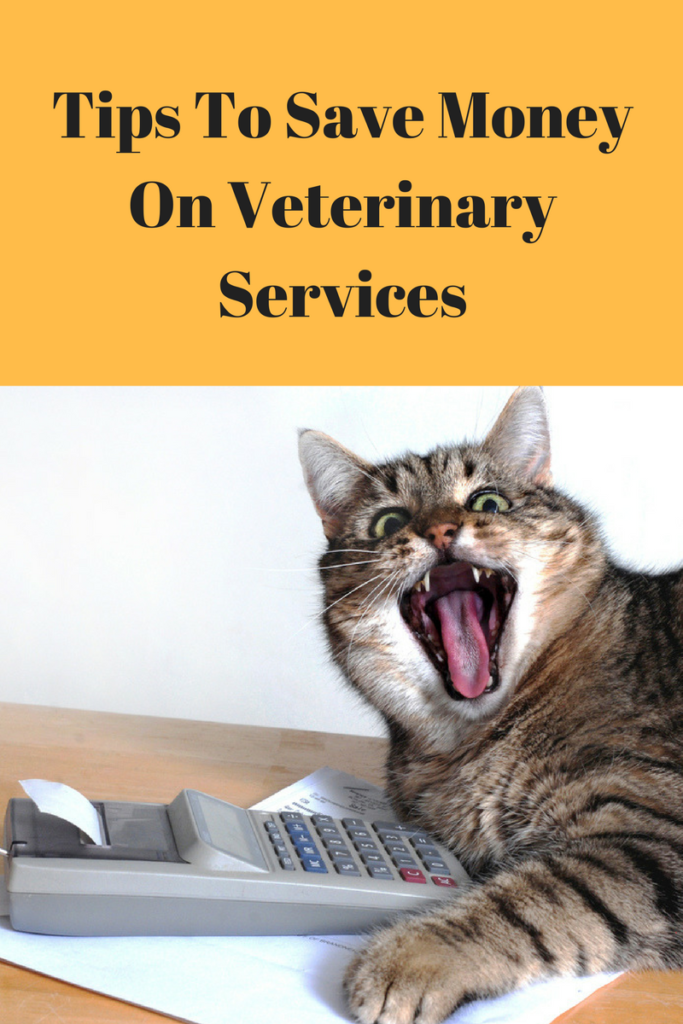Our pets mean the world to us, right? In fact, it is safe bet to say that many of us will do most anything for their benefit, no matter the cost. But let’s face it – pets, like kids, can be expensive, even when they are healthy. So what can we do to minimize medical costs when it comes to their overall care? The experts at cattime.com offer some moneysaving tips for veterinary care:
Moneysaving Tip 1: Ask Vet About Alternatives
When your vet is aware of what you can afford in terms of his services, it can open the door to more authentic communication, and being open with him can potentially save you money.
There is often more than one way to treat or diagnose a health condition in a pet, and perhaps in a certain instance, a $20 antibiotic might be the answer instead of the more expensive option.
Moneysaving Tip 2: Talk To Vet About Financing
Some vets might consider an exchange of services. While it might not always work, it never hurts to ask. I once saved money on a veterinarian exam for my pet by offering to write some web site copy for the vet’s practice. It saved me a good $100.00 at the time.
A few years ago, a friend was trying to figure out how to pay for services her cat needed. The vet’s office staff told her about CareCredit. It’s a network of vets and other caregivers that offer interest free financing based on the total cost of the service your pet needs. The care provider will give you the total cost of the service, and the time period you’ll have to pay it off without interest.
Moneysaving Tip 3: Request An Estimate
It is reasonable to request an estimate from your veterinarian for services before they are provided. This is being financially responsible and ensuring there are no surprises, or that you will wind up paying for things that are unnecessary.
Moneysaving Tip 4: Are Annual Vaccines Necessary?
Ask your vet about annual vaccinations. Are all of them necessary every year? Can’t some of them be administered every few years? In some cases, they can. Discuss this with your vet. There is research that shows over vaccination can be harmful to pets’ health.
Moneysaving Tip 5: Shop Around For Prescriptions
When it comes to prescriptions, be sure to price shop, especially if the medication prescribed is actually of a human variety. Sometimes those can be filled less expensively than the ones for a pet. I’ve talked to several people who saved almost 50% by shopping around. If you are a Costco or Sam’s Club member, check with their inhouse pharmacy.
Online pharmacies are another option but be sure to do your research on them, as some are not as reputable as they may appear to be.
Moneysaving Tip 6: Pet Insurance
Consider pet health insurance. Some premiums can run up to $400 a year, but such plans usually cover roughly 80% of the out-of-pocket expenses. One visit to the pet emergency clinic could easily cost over $400!
Conclusion
At the end of the day, it’s important look at the bigger picture. Having a pet certainly adds joy to our lives and is great for our own personal health. From that angle, if having a loving animal companion keeps my blood pressure down, I will save major dollars when I don’t have to purchase my OWN medications!!!!








These are great tips, some of which I remember using as a pet parent. Pet insurance is great for reimbursement of some preventative care expenses including final expenses. Also, use the mouth the good Lord gave you and ASK questions and research. You’d be surprised at how more options become available because you pushed for other alternatives. Great post.
We have pet insurance and the vet usually gives an estimate without me having to ask. And Mr. N is on a limited vaccine protocol.
Our cats need to have vaccinnations to be covered by their insurance policies, so, much as we would like to extend the period – its not an option. Until research comes down firmly in either yes or no to over vaccination time periods, insurance companys will continue to cover their backs by ensuring the pets in their care are covered against potential illnesses.
A second, and to us, very important point is to ask your experienced rescue friends for extra insight. Not veterinary advice BUT an other perspective. An example? No vet ever suggested we needed a PH Binder to help Dusty (late stage renal) but a Britih rescue colleague uses it and recommended Ipakitil. The powder is available here in NZ unlike many medicines and Dusty gets a quarter of a teaspoon twice a day. It has made a HUGE difference to him but the vet did not menton it at all. Not a vet critcism – a frustration I think.
It’s scary how little some vets know about other treatment options and nutrition. There are some great resources (i.e. online forums) that can provide options to check out. I’ve started doing a lot more research about health and wellness for me and my pets. I used to take the word of the doctor/vet as gospel, and didn’t ask questions because I wasn’t informed enough before going in. That has changed. Glad Dusty has something that’s working well for him, I’m sure that makes you feel tons better, too!
These are great tips! I had the most uncomfortable situation at the emergency vet last winter. I brought it my dog and they wouldn’t discuss alternatives until I had formally declined the first option. I felt like I was playing Let’s Make A Deal with my dog’s life. It was terrible. Fortunately, my dog was stable and I didn’t feel like minutes mattered. My regular vet goes through all of the options when discussing treatment, instead of this very peculiar act from a used car salesman.
I will avoid that emergency vet in the future.
I HATE the emergency clinic here and go only when my regular vet is gone or closed. Pretty messed up that they wouldn’t discuss alternatives, I would avoid them too!
The best way, of course, to cut down on vet expenses is prevention and catching potential issues early. Insurance, I believe, really is a must. Initially, we opted for a savings account – the $5000 we had in there was gone in a matter of two months!
A good pet insurance company is a MUST. With the right coverage, not only are deductibles relatively low but they will cover prescriptions and preventative medicine as well. This post is a great source of information.
Thanks for these tips because wherever we can save a bit of money helps a lot
Thank you for the tips! Veterinary care can get really expensive sometimes. One of the best tips is to do everything you can – diet, water, preventative care – to keep your cat healthy. Prevention can cost money too, but not nearly as much as illness will in the end. I love your tip about requesting an estimate. Seeing everything right in front of you helps you to make choices that you can afford.
Veterinary care can be expensive, so these recommendations are greatly appreciated. I do have Care Credit and pet insurance for my girls.
Very useful tips as vet bills can be expensive. All it takes is one small accident or an illness and you can be looking at thousands of dollars. It is definitely good to talk to your vet and get estimates and explore treatments. I didn’t realize the cost of medication could vary significantly.
These are fantastic tips! Sharing!
We found a pet pharmacist that supplies a number of our regular prescriptions – it makes a HUGE difference.
Plus, with three dogs plus the cat we won’t be without insurance – the alternative is a far greater price and I’m not prepared to pay that.
I also shop around for vet care. If it’s not urgent care. There is NO reason why you can’t calla round for quotes. I then will let my usual vet know I found a better deal and honestly often (90%) they will match it. It’s a service like any other.
I’m always down to save some cash! Thanks for sharing these tips. Definitely gonna keep this in handy.
Vet costs can definitely add up quickly, especially if you have multiple pets! These are all great suggestions for saving money. Whenever my cats need a prescription (which is rare, thank goodness), I always buy them from the vet, but I think next time I’ll shop around more. Thanks for the tips!
Great tips, thanks!